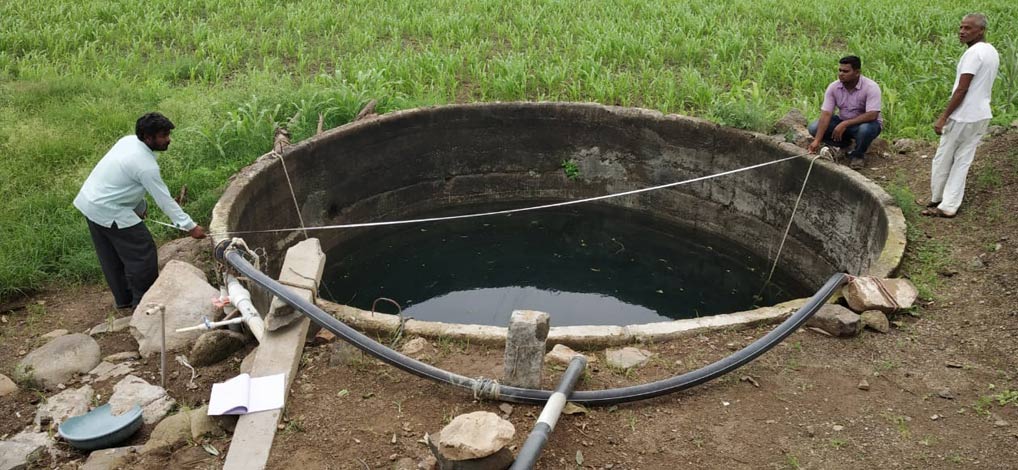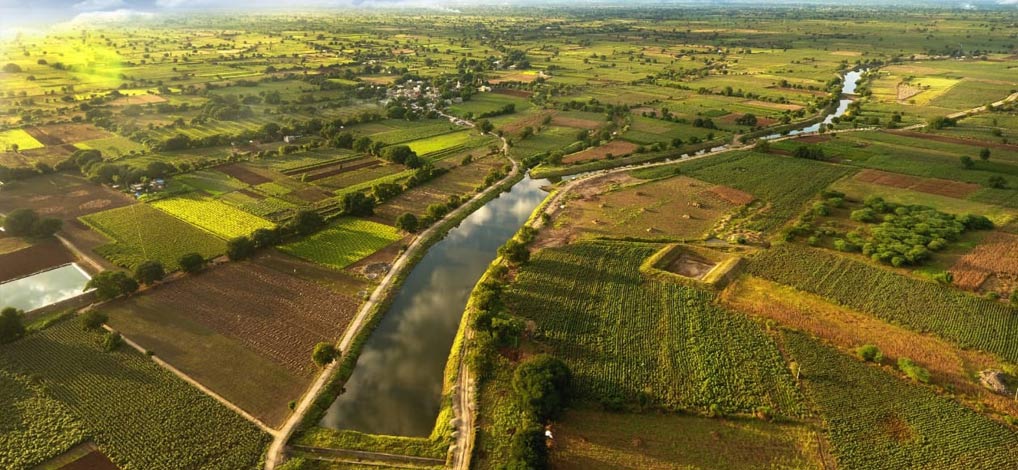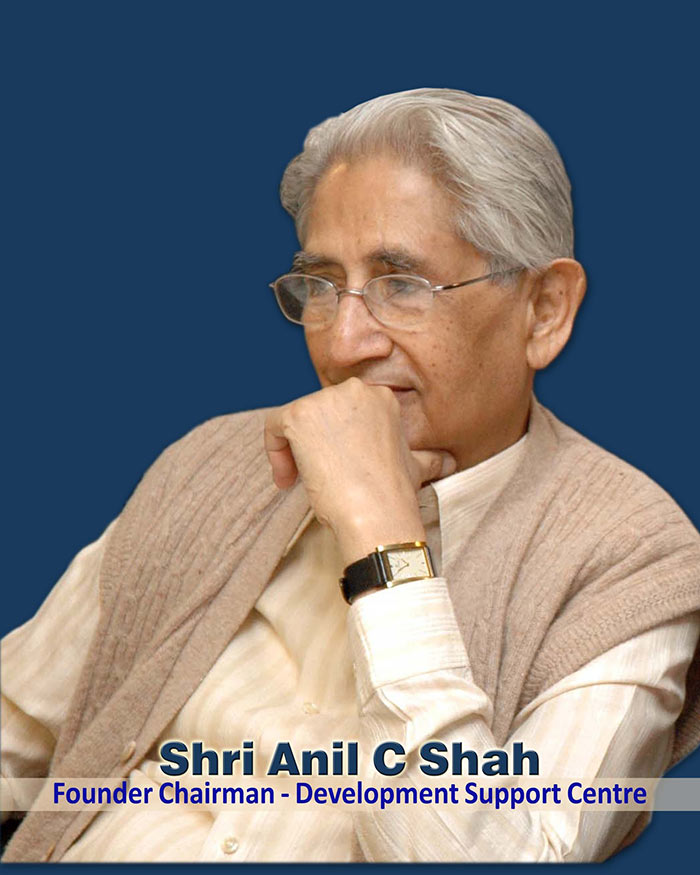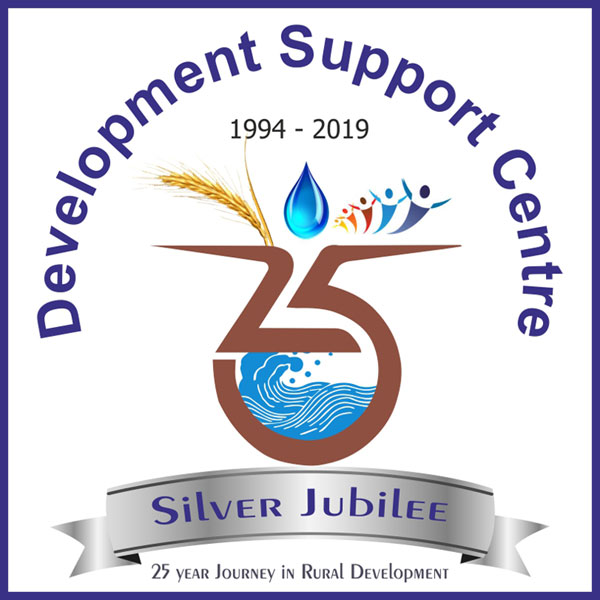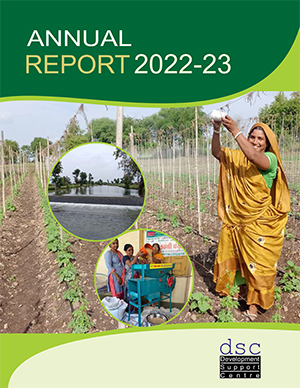Communication
Home  Communication
Communication
Publication of news-letter DIVADANDI.
DSC has initiated quarterly news-letter named DIVADANDI with a view to empowering farmers and CBOs involved with agriculture and natural resources management activities. From the very first issue DIVADANDI has received very positive responses from farmers, field workers, government officials and agriculture experts. Looking to its popularity and acceptance, DSC has increased its circulation and printed 5000 copies. From its second issue farmers have started contributing their experiences in an article form.
Till now the unit has brought out three issues of DIVADANDI covering Kharif, pre Rabi and post rabi seasons. DIVADANDI is considered as a text book by farmers and is one of the few news-letters which caters to agriculture practices, explains scientific researches, promotes new farm innovations and emphasizes on village based organizations in rural development. Readers' contribution is becoming a regular feature of DIVADANDI.
Farmers and their CBOs including Shrota Mandals (listeners groups) of the radio programme SAJJATA NO SANG LAVE KHETI MA RANG are willing to contribute in form of price, articles etc. Farmers and readers consider the radio programme and DIVADANDI as a twin-tool to improving their agriculture and animal husbandry practices.
Communication and Information Services
Communication is a crucial element in any developmental process. DSC's Mission Statement emphasizes on knowledge based support to people's centric NRM. That's why the role of creating knowledge and dissemination of knowledge is very important. This could be achieved through traditional media like street plays and pad-yatra as also the modern media like radio programmes and video films. For the wider dissemination of information about sustainable agriculture, CBOs' achievements and DSC's intervention to the field areas is compiled and published in newsletter viz. "Divadandi".
With the objectives to increase awareness, to make development programmes demand driven and to build capacity of all stakeholders in community based natural resource management programmes, DSC has set up a communication unit which produces communication material mainly in Gujarati and Hindi languages. Communication unit identifies crucial issues and messages for wider dissemination, devise communication strategy and produces required formats, partially in-house and also through renowned communication agencies.
So far, DSC has produced 51 print formats which include informative leaflets and manuals on NRM programmes, posters on various messages, motivational story books, and collection of essays, research papers, reports and Government GRs on NRM. DSC has also produced 7 video films,
Some of the Important Communication Material Developed by DSC
| Awareness Material | |
|---|---|
| 1 | Compilation of government orders on policies and procedures in PIM and Watershed |
| 2 | Introductory Booklet on PIM and Watershed |
| 3 | Posters and pamphlets on PIM and Watershed |
| 4 | Stickers on PIM and watershed |
| Films | |||
|---|---|---|---|
| No. | Descriptions | Language | Duration |
| 1 | "Kiyadar ni Vaat", A film based on a success story of PIM in Dharoi Irrigation Project. | Gujarati | 40 Minutes |
| 2 | 'Lalak', A film on the role of People's Institutions in participatory watershed development. | Gujarati | 50 Minutes |
| 3 | 'Jal - Jivan no Dhabkar', A film on the technical aspect of watershed structures. | Gujarati | 45 Minutes |
| 4 | 'Chalo, Uthao Bidu Khedu', A film on the challenges of PIM. | Gujarati | 30 Minutes |
| 5 | "Understanding the Participation",A film on workshop for operationalising participatory approach in Natural Resource Management | English | 24 Minutes |
| 6 | "Understing the People":PRA practiced by Anil C.Shah | English | 23 Minutes |
| 7 | "Kiyadar ki bat", A film based on a success story of PIM in Dharoi Irrigation Project | Hindi | 40 Minutes |
| General Publications | |
|---|---|
| 1 | "Advantage Watershed", A comparative study of Watershed and Non-watershed Villages in Gujarat (A research report, sequel to "Eloquent 'Silent' Revolution") |
| 2 | A report on the two-day workshop on 'Operationalising Participatory Approaches in Natural Resource Management' for GO/ NGO leaders of Gujarat state with Professor Robert Chambers as a key resource person-useful for managers and implementers of NRM programmes |
| 3 | "Durniti ne Dushasan", (Wrong Policies and Bad Governance), Booklet in Gujarati language highlighting problems of bad governance. |
| 4 | "Carrying the Message of Participation: A Note on Rangpur Irrigation Cooperative", A Case Study of Rangpur Irrigation Cooperative Society in North Gujarat. |
| 5 | "Experience of Volumetric Pricing of Water during Rabi 2001-02 of Rangpur and Thalota Water User Associations of Dharoi Irrigation Project". |
| 6 | "Participatory Rabi Planning Experiences and Learning Lessons", A paper printed in small Booklet form. |
| Training Material / Manuals | |
|---|---|
| 1 | Construction of Water Harvesting Structures |
| 2 | Attitude and Behaviour for Participation |
| 3 | Process of formation of Community Based Organizations |
| 4 | Technical Manual for Water Harvesting Structures |
| 5 | Process for Women's Participation in Watershed |
| 6 | Guiding Principles for Savings and Credit Groups |
| 7 | Accounting and Administrative Information for Watershed Development" |
| Others | |
|---|---|
| 1 | Crossword and Snakes/ Ladders. The format of popular games is used to communicate messages to the members of Self-Help Groups |
| 2 | Static Display of the Watershed Model |









